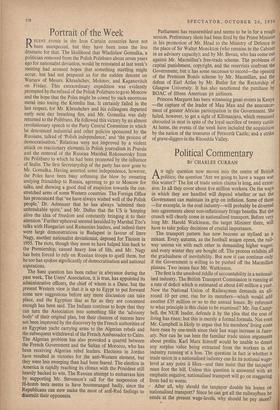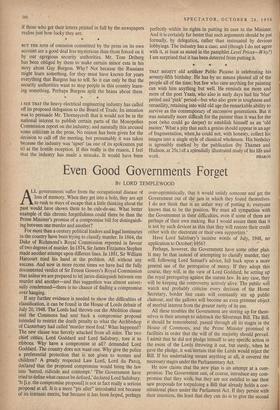The first is the unsolved riddle of accountability in a
national- ised industry. The British Transport Commission is running at a rate of deficit which is estimated at about £40 million a year. Now the National Union of Railwaymen demands an all- round 10 per cent. rise for its members—which would add another £35 million or so to the annual losses. By reference to what principle is this claim to be examined? Mr. Jim Camp- bell, the NUR leader, defends it by the plea that the cost of living has risen; but this is merely a formal formula. Not even Mr. Campbell is likely to argue that his members' living costs have risen by one-tenth since their last wage increase in Janu- ary. Nor can he use here the familiar trade union arguments about profits. Karl Marx himself would be unable to detect any surplus value being extracted from the workers in an industry running at a loss. The question in fact is whether a trade union in a nationalised industry can fix its notional wage- level at any point it likes—and then insist that the taxpayer must foot the bill. Unless this question is answered with an emphatic negative, nationalised transport will go on staggering from bad to worse.
After all, why should the taxpayer double his losses on nationalised transport? Since he can get all the railwayhaen be needs at the present wage-levels, why should he pay more? if those who get their letters printed in full by the newspapers realise just how lucky they are.











































 Previous page
Previous page